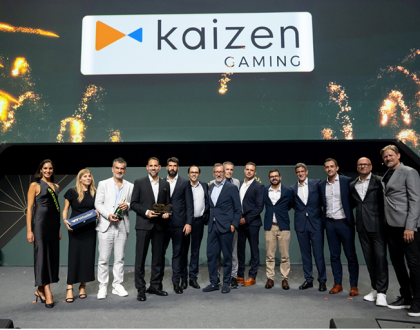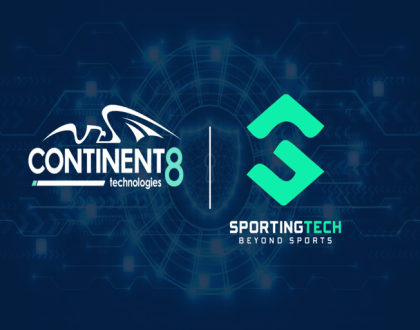Potential Concerns with SOFTSWISS’s Introduction of Non-Monetary Prizes

In the highly competitive world of #iGaming, @SOFTSWISS has recently introduced an update to its #Tournament Tool within the #GameAggregator, allowing operators to offer a variety of non-monetary prizes, including luxury cars, vacations, mobile devices, and branded merchandise, alongside traditional cash prizes. While this move is portrayed as a response to shifting player preferences, it raises several concerns related to transparency, player protection, and the legality of such rewards in online gambling.
Evaluating the Risks of Non-Monetary Prizes in iGaming
The introduction of non-monetary prizes in online casino tournaments marks a significant departure from the conventional reward systems, which have primarily relied on cash incentives. SOFTSWISS claims that this approach enhances player engagement and retention by offering a broader spectrum of rewards. However, it is crucial to consider the potential legal and ethical implications of this shift.
Transparency and Player Protection: Key Concerns
A critical aspect of any gaming platform is ensuring transparency and player protection. With the introduction of non-monetary prizes, there is an increased risk of misleading players regarding the actual value and attainability of these rewards. Luxury items and exclusive experiences can be enticing, but they may also obscure the true costs or odds associated with winning such prizes. Without stringent regulations and clear communication, players could be misled, which would undermine trust in the platform.
Moreover, the diversification of rewards could lead to concerns about the potential for exploitation of players, particularly those who are more vulnerable to the allure of high-value, non-monetary items. It is essential to question whether adequate safeguards are in place to protect players from making irrational decisions driven by the desire for luxury goods rather than a fair gaming experience.
Legal Implications and Regulatory Compliance
The legality of offering non-monetary prizes in online gambling is another area that warrants close scrutiny. Different jurisdictions have varying regulations concerning the types of rewards that can be offered in online gambling activities. The introduction of non-monetary prizes by SOFTSWISS may require operators to navigate complex legal landscapes, potentially exposing themselves to regulatory risks if these prizes are not in full compliance with local laws.
Additionally, the classification of such non-monetary prizes—whether they are considered equivalent to cash or require separate regulatory approval—could complicate their implementation. Failure to comply with legal standards might result in penalties or legal action against operators, thereby affecting the platform's reputation and trustworthiness.
Customization and Segmentation: A Double-Edged Sword?
While SOFTSWISS highlights the ability to customize tournaments for specific player segments as a strength, this approach could also raise concerns about fairness and inclusivity. Targeting high-rollers with exclusive rewards such as luxury cars and premium travel packages may alienate casual players, creating a divide between different player segments. This segmentation could lead to an imbalance in the gaming experience, where only a select group of players benefits from the most valuable rewards.
The Role of Data and Ethical Considerations
SOFTSWISS emphasizes the importance of a data-driven approach in shaping reward strategies. However, the use of player data to tailor rewards raises questions about the ethical implications of such practices. The potential for manipulation of player behavior through personalized rewards—particularly those of a high monetary or emotional value—necessitates careful consideration of data privacy and ethical standards. Operators must ensure that their use of data does not cross ethical boundaries, leading to player exploitation or unfair advantages.
A Cautious Approach to Innovation
While the introduction of non-monetary prizes in iGaming tournaments by SOFTSWISS represents an innovative approach to player engagement, it is not without its challenges and risks. Transparency, player protection, legal compliance, and ethical considerations must all be carefully managed to ensure that this new strategy does not lead to negative consequences for players or the industry as a whole. As operators explore the potential of such rewards, a cautious and measured approach is essential to safeguard the interests of all stakeholders involved.
About SOFTSWISS
SOFTSWISS is an international technology company that provides software solutions for managing iGaming projects. With a team of over 2,000 experts across multiple locations, including Malta, Poland, and Georgia, SOFTSWISS offers a comprehensive suite of products designed to meet the diverse needs of the online gaming industry. Despite its innovations, the company's recent introduction of non-monetary prizes in its Tournament Tool requires careful examination to ensure alignment with regulatory standards and ethical practices.
FAQs on SOFTSWISS’s Introduction of Non-Monetary Prizes in iGaming
What are the potential risks associated with offering non-monetary prizes in iGaming tournaments?
Non-monetary prizes, such as luxury cars or vacations, can obscure the true costs or odds of winning, potentially misleading players. There’s also a risk that players might be exploited, particularly those who are vulnerable to the allure of high-value, non-cash rewards.
How does the introduction of non-monetary prizes impact player transparency and trust?
Introducing non-monetary prizes could lead to a lack of transparency if players are not fully informed about the value, odds, and terms associated with these rewards. This could undermine player trust, especially if the rewards are perceived as unattainable or overly complex.
Are there legal concerns with offering non-monetary prizes in online gambling?
Yes, the legality of non-monetary prizes varies by jurisdiction. Operators must navigate a complex regulatory landscape, and non-compliance could lead to penalties or legal actions. Some jurisdictions may require specific approvals or classify these prizes differently from cash rewards.
How might the offering of non-monetary prizes affect player protection?
Non-monetary prizes could encourage riskier behavior among players, particularly those who might chase high-value rewards without fully understanding the odds. This could lead to increased problem gambling or financial harm, raising concerns about player protection.
Could the customization of tournaments for different player segments create fairness issues?
Customization may lead to an imbalance, where high-rollers receive exclusive rewards while casual players are left with less valuable incentives. This could create a divide among players and lead to perceptions of unfairness in the gaming experience.
What ethical concerns arise from the data-driven approach used to tailor rewards in iGaming?
The use of player data to customize rewards raises ethical questions about privacy and the potential for manipulation. There’s a risk that operators could exploit player behavior to increase engagement in ways that may not be in the best interests of the players, particularly those who are more vulnerable.
How does SOFTSWISS ensure that non-monetary prizes are offered in a legally compliant manner?
SOFTSWISS must ensure that all non-monetary prizes comply with the legal requirements of each jurisdiction in which they operate. This includes obtaining necessary approvals and ensuring that the prizes do not violate local gambling laws, which can be complex and varied.
What steps are being taken to prevent the exploitation of vulnerable players with non-monetary prizes?
It’s unclear if sufficient safeguards are in place to prevent the exploitation of vulnerable players. Operators should implement strict measures to ensure that non-monetary prizes are offered responsibly, with clear communication and support for players who may be at risk of problem gambling.
How might the focus on high-value non-monetary prizes impact the overall gaming experience?
Focusing on high-value non-monetary prizes might skew the gaming experience towards wealthier players, potentially alienating those who prefer cash prizes or more attainable rewards. This could reduce inclusivity and harm the overall player community.
What are the long-term implications of SOFTSWISS's strategy on the iGaming industry?
While this strategy might drive short-term engagement, it could lead to long-term issues, including increased regulatory scrutiny, potential legal challenges, and a loss of player trust if the rewards are not managed transparently and ethically. The industry must tread carefully to balance innovation with responsible gaming practices.
Recommended Posts

James Curwen: Shaping Yggdrasil’s Future
October 4, 2024

Kaizen Gaming’s Success at SBC Awards 2024
October 4, 2024

Sportingtech Boosts Security with Continent 8
October 4, 2024




